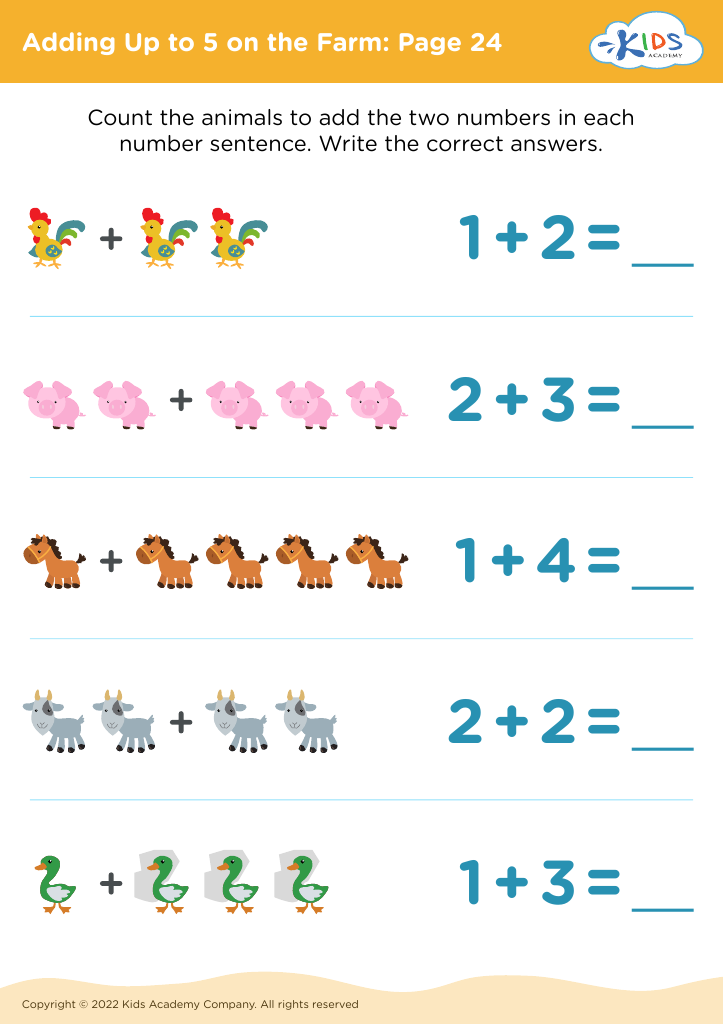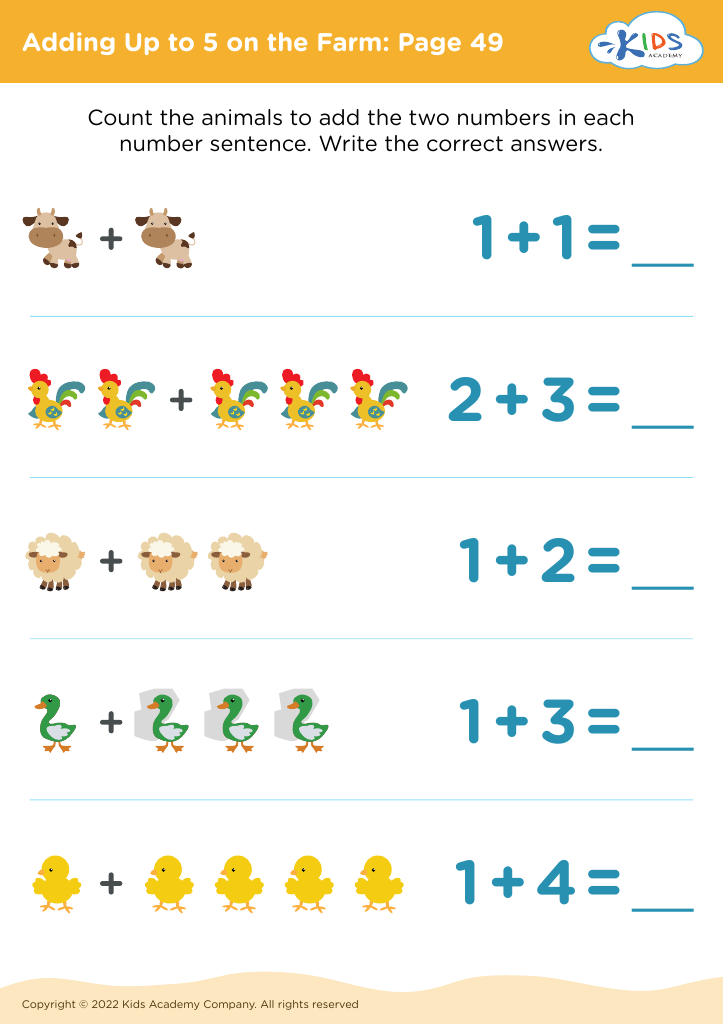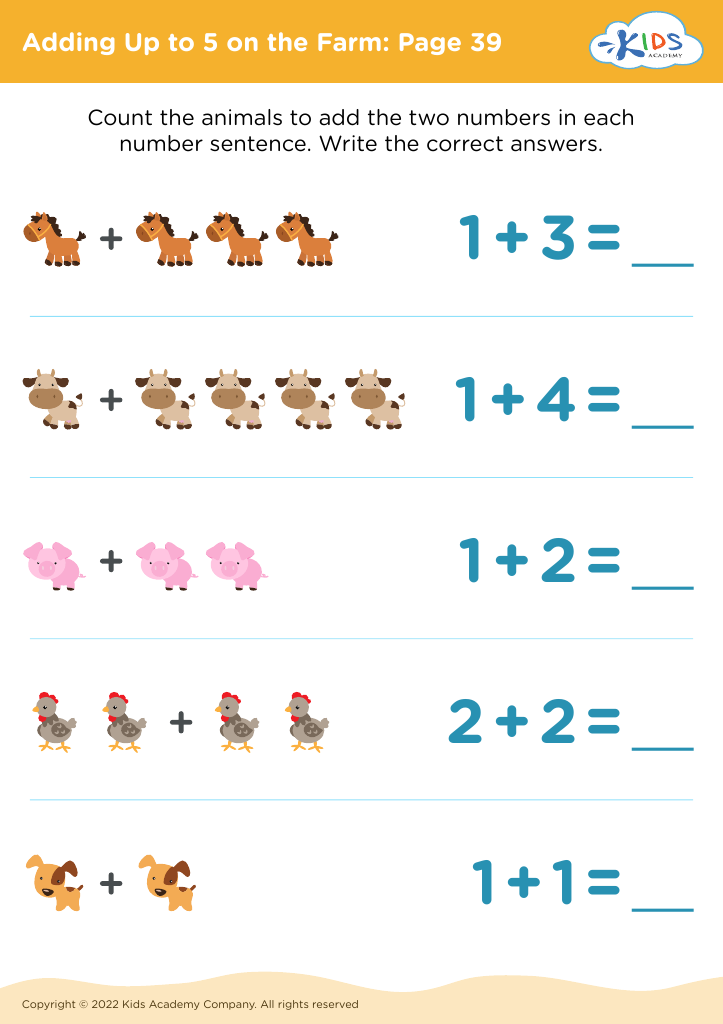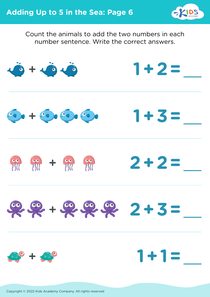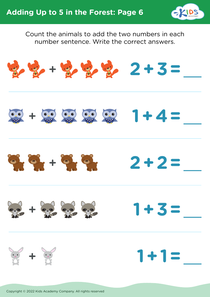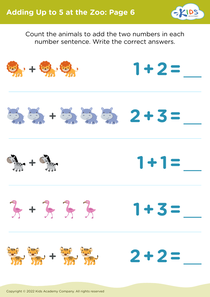Fine motor skills (writing numbers) Adding on the Farm Worksheets for Ages 4-9
3 filtered results
-
From - To
Boost your child's fine motor skills with our "Adding on the Farm Worksheets," designed specifically for ages 4-9! These engaging, playful worksheets not only teach essential math concepts like addition but also focus on developing the hand-eye coordination necessary for writing numbers. With adorable farm-themed illustrations, each worksheet encourages young learners to trace and write numbers while solving simple addition problems. Perfect for classroom or home use, these activities provide a fun, interactive way to strengthen both math and fine motor skills, setting a solid foundation for future learning. Download today to transform learning into an enjoyable farm adventure!
Fine motor skills are crucial for young children, particularly when it comes to tasks such as writing numbers and engaging in activities like "Adding on the Farm." At ages 4-9, children's development hinges on their ability to manipulate small objects with precision, an essential foundation for future learning. When children practice writing numbers, they strengthen important hand-eye coordination and dexterity, enhancing their ability to perform more complex tasks later on, such as drawing or typing.
Engaging in activities like "Adding on the Farm"—where children use playful farm-themed contexts to learn math—makes this practice enjoyable and relatable. It helps them grasp numerical concepts while honing their fine motor skills. Parents and teachers should care about this intersection because fostering a child's fine motor skills not only improves their academic competence but also boosts self-confidence and independence in their learning process.
Furthermore, these skills play a critical role in everyday life; a child proficient in fine motor tasks is better prepared for writing, drawing, and even basic self-care activities. By investing time and resources into developing these skills, parents and educators lay the groundwork for successful learning and life experiences, helping children thrive both academically and personally.
